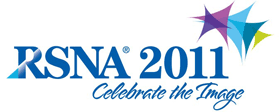
Abstract Archives of the RSNA, 2011
Tomoyuki Noguchi, Presenter: Nothing to Disclose
Hiroyuki Irie MD, Abstract Co-Author: Nothing to Disclose
Takateru Ootsuka, Abstract Co-Author: Nothing to Disclose
Masashi Nishihara MD, Abstract Co-Author: Nothing to Disclose
Masatou Kawashima, Abstract Co-Author: Nothing to Disclose
Sho Kudo MD, PhD, Abstract Co-Author: Nothing to Disclose
Cerebrovascular reserve (CVR) is one of the important indications to decide the revascularization surgery for patients with moyamoya disease(MMD). CVR is usually assessed by using nuclear medicine. In this study, we proposed a pulse-wave-synchronized ASL-MRI (Pulsy-ASL-MRI) method which is to acquire the perfusion data under synchronization of pulse-wave. In order to develop the estimation method of CVR noninvasively, the standard ASL-MRI and Pulsy-ASL-MRI were compared with single photon emission computed tomography (SPECT) imaging on MMD.
CBF examinations using ASL-MRI and Pulsy-ASL-MRI on 3-Tesla MRI and SPECT imagings with iodine-123-N-isopropyl-p-iodoamphetamine at resting (rest-IMP) and after acetazolamide challenge (ACZ-IMP) were performed on 16 MMD patients. The cerebral blood flow (CBF) values determined by ASL-MRI (ASL-value), Pulsy-ASL-MRI (Pulsy-ASL-value), rest-IMP (rest-IMP-value), and ACZ-IMP (ACZ-IMP-value) of cerebral hemispheres (36 sides) were measured with normalized CBF maps created from data of those 4 perfusion imaging methods. Cerebrovascular reserve (CVR) was calculated by rest- and ACZ-IMP-values. Corrected CVR was also calculated by using corrected ASL-values and Pulsy-ASL-values which were adjusted to ACZ-IMP and rest-IMP, respectively, by least-square method. We assessed the relationships of ASL-value versus ACZ-IMP-values, Pulsy-ASL-values versus rest-IMP-values, and corrected CVR versus CVR.
The ASL-values, Pulsy-ASL-values, rest-IMP-values, and ACZ-IMP-values (mL/100g/min) were 25.6±11.9, 23.7±13.3, 32.7±6.9, and 42.4±10.7, respectively. Corrected CVR and CVR (%) were 33.1±41.5 and 29±17.5, respectively. Significant relationships were observed between ASL-values versus ACZ-IMP-values (correlation coefficient: r=0.807, p<0.01), Pulsy-ASL-values versus rest-IMP-values (r=0.544, p<0.01), and corrected CVR versus CVR (r=0.799, p<0.01).
Significant relationships of ASL-MRI versus ACZ-IMP and Pulsy-ASL-MRI versus rest-IMP might suggest that ASL-MRI and Pulsy-ASL-MRI could delineate the detailed condition of cerebral perfusion on MMD. CVR might be noninvasively speculated by using both ASL-MRI and Pulsy-ASL-MRI on MMD.
CVR might be noninvasively speculated by using both ASL-MRI and Pulsy-ASL-MRI on MMD.
Noguchi, T,
Irie, H,
Ootsuka, T,
Nishihara, M,
Kawashima, M,
Kudo, S,
Pulse-Wave-synchronized Arterial Spin-labeling MR Imaging (Pulsy-ASL-MRI) on Moyamoya Disease Compared with SPECT Imaging. Radiological Society of North America 2011 Scientific Assembly and Annual Meeting, November 26 - December 2, 2011 ,Chicago IL.
http://archive.rsna.org/2011/11001334.html

